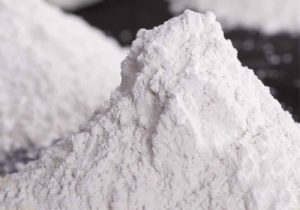
CP-992 Organophilic clay
CP-992 Organophilic Clay, the wet process improved viscosifier and gelling agent . It is a rapidly dispersing.
Gelling agent is a kind of coating additive. When it is used in coatings, it is called as anti settling agent, anti sagging agent, etc., but when it is used in oil field drilling, it is called as a suspending agent.When you contact us, please tell us your application field. We will recommend the most direct and effecti

CP-992 Organophilic Clay, the wet process improved viscosifier and gelling agent . It is a rapidly dispersing.

CP-982 Organophilic Clay is an amine treated bentonite with a moderate temperature performance.

CP-150 Organophilic Clay is a self-activating organoclay that disperses easily and performs well in diesel, low aromatic mineral oil, modified vegetable oil, and synthetic base fluid formulations.


CP-10 organoclay is a rheological additive made of organoclay. It is used in non-polar to moderately polar aliphatic and other solvent systems

CP-MPZ organoclays is an modified bentonite that is used in solvent and resin systems ranging from non-polar to highly polar.

The CP-MPS rheology modifier is a type of organo clay rheological additive that is used in solvent and resin systems ranging from non-polar to high polarity.
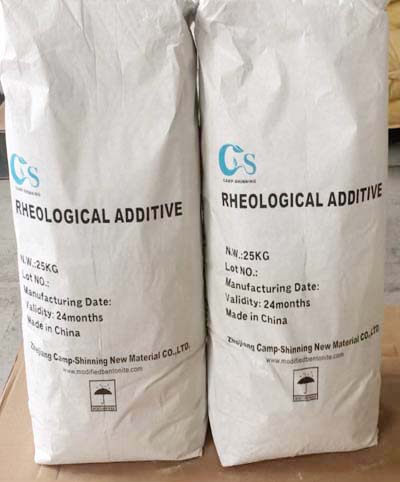
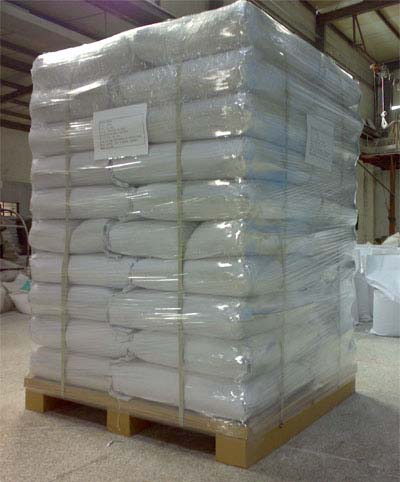
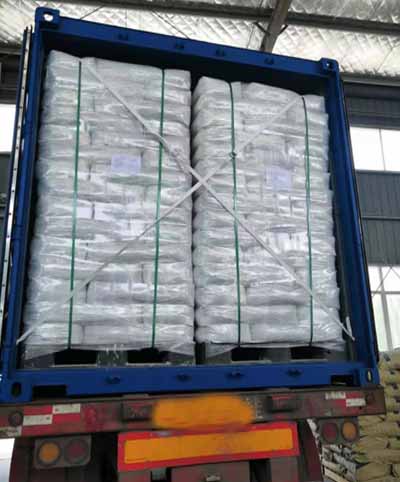
Organoclay Supplier / Manufacturer :
Internet address: https://www.rheologymodifiers.com/
Email address: [email protected]
Whatsapp / Wechat: +86-13185071071
Organophilic Clay Supplier / Manufacturer :

CP-EW Organoclay for Water Based paint. It is primarily employed in water borne paint systems,such as latex paint. So it is a good water based additive in paints,coatings,grease etc.

CP-EWS Modified bentonite It is employed in a water-borne coatings system. CP-EWS organoclay outperforms CP-EW in terms of thixotropy, transparence, and dispersion.

CP-WBS Rheology Modifier is rheological modified bentonite. It is mostly employed in water-borne systems.


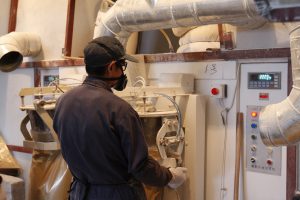
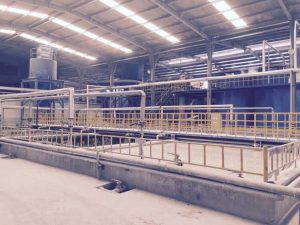
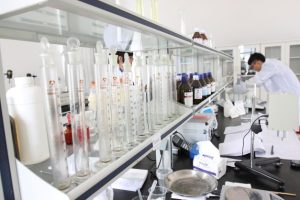
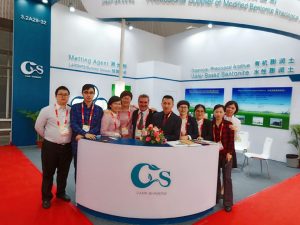
The Organoclay bentonite | Organophilic clay -specialized Zhejiang Camp-Shinning New Material CO.,LTD. and Hangzhou Camp-Shinning CO.,LTD. are subsidiaries of Camp-Shinning.
Camp-shinning concentrated on high value-added, high-technology organo bentonite series products, particularly in research, development, manufacturing, and sales of organic (solvent based organoclay) and inorganic bentonite (water based organoclay).
Our Organophilic bentonite clay finds widespread application in oil drilling mud, paint, coating, lubricating grease, adhesive, construction mortar, cosmetics, and waste water treatment, among other applications. A group of world-class professional users and distributors, such as SUN CHEMICAL,,SIEGWERK,LEHMANN &VOsS, and others, have acknowledged our dependable quality.
Current annual production of organic bentonite clay | organoclay is 20,000 metric tons, while refined bentonite production is 15,000 metric tons.
Our ISO 9001 quality system certification and IS014001 environmental management system certification, as well as our own mine with superior ore quality and production of proprietary technology, ensure the long-term quality and supply stability of our Organoclay bentonite | Organophilic clay.
Our mission is to provide users with superior Organoclay bentonite | Organophilic clay and services and to collaborate with them to achieve success and glory.
Internet address: https://www.rheologymodifiers.com/ and email address: [email protected]
Whatsapp / Wechat: +86-13185071071
Organoclay | Organophilic Clay CP-2 also named amine treated Bentonite.
In diesel oil based fluids,organophilic clay viscosifier CP-2 are used to increase carrying capacity and suspension properties, providing support for weight materials and improved cutting removal. Organophilic bentonite also aids in filter-cake formation and filtration control.
Properties
Composition Organically modified bentonite clay
Physical appearance Off white to tan free-flowing powder
Moisture content (105℃,2hr) ≤4%
Particle size (<76μm or 200mesh) ≥95%
Specific Gravity 1.6-1.8
Advantages
Effective viscosifier and gellant
Aids control of fluid loss to the formation
Increases emulsion stability
Improves cuttings carrying and hole cleaning capacity
Suspends weighting materials and other solids
Confers temperature stability to the fluid
Application
Base oil:
Diesel Oils
Crude Oils
Mineral Oils
Synthetic Oil
Viscosifying drilling Fluids:
Oil based drilling fluids
Invert emulsion fluids
Workover fluids
Completion fluids
Casing packs
Packer fluids
Spotting fluids
Package
Organoclay | Organophilic Clay CP-2 is packed in 50lb(22.7kg) or 25kg/bag or customized,multi-wall paper sacks or Kraft paper bag with PE liner or customized.
Storage
CP-2 Store in a dry, well-ventilated area with temperature of 0℃-30℃. Keep container closed. The quality guarantee period is 24 months.
Notice
The information on use is based on data which are believed reliable, but any recommendation or suggestion made is without guarantee or warranty, since the conditions of use are outside our control. All products are sold on the conditions that purchasers shall make their own tests to determine the suitability of such products for their purpose and that all risks are assumed by user. We disclaim any responsibility for damages resulting from careless or improper handling or use. Nothing herein is to be taken as permission, inducement or recommendation to practice any patented invention without a license.
Internet address: https://www.rheologicaladditive.com/ and email address: [email protected]
Whatsapp / Wechat: +86-13185071071
Gelling agent organoclay A chemical generated from organoclay is referred to as an organoclay gelling agent. When diluted in water, this material, which is a form of clay, demonstrates gelling characteristics. Its advantages and applications will be discussed in this essay. It also provides information about the substance’s chemistry and how it is made. advantages of the Gelling agent organoclay Numerous cosmetic items can benefit from organoclay gelling agent’s advantages. However, the makeup of the carrier affects how quickly these compounds gel. For instance, pure silicone carriers can result in inferior thickening and phase separation of organoclay while pure organic carriers can quickly gel and produce an inhomogeneous master gel. The polymer that is generally used to make organoclay is a non-ionic polymer. The clay’s hydrophobic qualities will be strengthened by this polymer, which will also increase the clay’s drying abilities. Organoclay should make up fifteen to thirty percent of the matrix gel. There are two steps that can be taken to reach this level of focus. The organoclays are first partially exfoliated in a carrier oil. The combination is then given a polar activator in the second phase. The mixture will have a consistency similar to paste. Gelling agent organoclay Applications for the gelling agent made of organoclay are numerous. For adsorption, hydrophobic partitioning, electrostatic attraction, and ion exchange, among other environmental applications, it can be used. The substance is also quite porous, which makes it perfect for producing a range of items. Many aromatic and organic contaminants can be effectively adsorbate using organoclay. In actuality, oil-based drilling fluids are the main application for organoclays. Organoclay is primarily used as a viscosifying and gelling agent in these applications, particularly in low-aromatic mineral oil-based drilling fluids. production method : Gelling agent organoclay A new technique called organoclay is being utilized in the oilfield to create treated water. The substance can eliminate BTEX as well as dissolved and free hydrocarbons. It is created by combining cationic quaternary amine salt and sodium montmorillonite clay. Combining these elements reduces the liquid’s surface tension, enabling the blending of materials that were incompatible before. For instance, whereas oil dissolves in clay, it does not in water. With the use of this procedure, crude deposits that were previously judged unsuitable for the manufacturing of gellant can now be used. The technique thereby greatly expands the potential sources of raw materials. Numerous industrial and academic applications for this method exist. It is a cutting-edge method of producing gelling agents. A natural mineral that works as a gelling agent is called organoclay. To minimize particle size, the onium compound can be dissolved in water or mixed vigorously. High energy pug milling can help the manufacture of organoclay gelling agents even more. The procedure gives the clay a large amount of energy while also giving it moisture. On clay with a moisture content of 25 to 40%, the method works well. Applications : Gelling agent organoclay This gelling agent is made up of an organic molecule and clay nanoparticles. A connection holds the organic molecule to the clay nanoparticles. Drug delivery, imaging and tracking, and reaction catalysis are further uses for organoclay gelling agents. Organoclay’s d-value and affinity for organic molecules are both increased via chemical treatment. Compared to other clay minerals like kaolinite and palygorskite, which would only adsorb organic molecules as an exterior coating, it is better suitable for organic modification.
Organoclay Supplier / Manufacturer :
Internet address: https://www.rheologymodifiers.com/
Email address: [email protected]
Whatsapp / Wechat: +86-13185071071
Organophilic Clay Supplier / Manufacturer :

CP-180 organoclay is an organo clay rheological additive (modified montmorillonite) designed specifically for use in solvent-based systems

CP-34 organoclay is a modified bentonite that has been specifically designed for use in solvent-based systems.

CP-EDS modified bentonite is a kind of organo clay rheological additive. It is used in systems of medium polarity and high polarity system.
Gelling agent organoclay